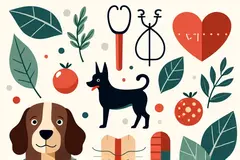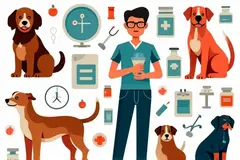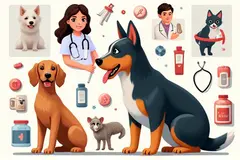 Act of giving birth. The process of giving birth. Giving birth. Birth.... ↪ Read more
Act of giving birth. The process of giving birth. Giving birth. Birth.... ↪ Read more Veterinary Drug Handbook (VDH) is the reference veterinarians turn to when they want an independent source of information on the drugs that are used in veterinary medicine today.
-
 Is veterinary Liniment Gel safe for humans?
Is veterinary Liniment Gel safe for humans? -
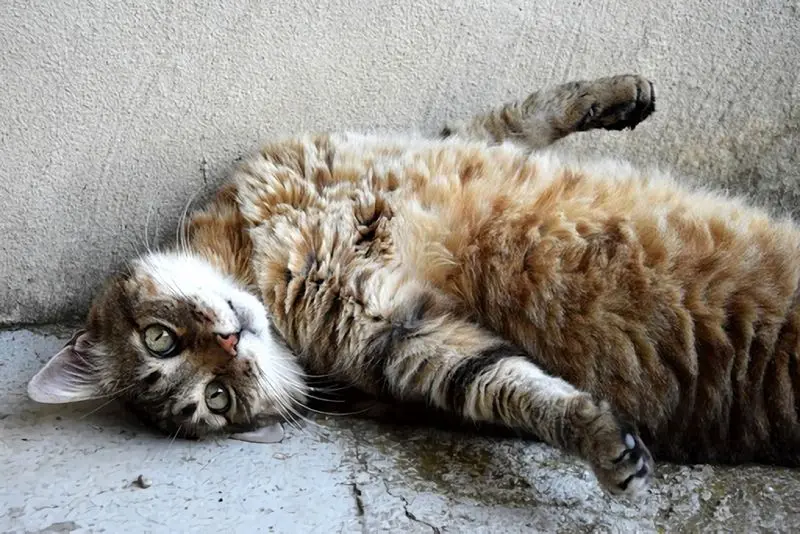 Giving Your Cat A Pill
Giving Your Cat A Pill -
 Dog Aggression
Dog Aggression -
 Dogs May Help Boost Infant Health
Dogs May Help Boost Infant Health -
 Animal-Assisted Therapy, Veterinary Social Work, & Social Work With People & Pets in Crisis
Animal-Assisted Therapy, Veterinary Social Work, & Social Work With People & Pets in Crisis -
 On-demand veterinary service gives advice on poorly pets
On-demand veterinary service gives advice on poorly pets -
 Should we stop throwing sticks for dogs?
Should we stop throwing sticks for dogs? -
 Can breathing in cat hair be harmful?
Can breathing in cat hair be harmful? -
 What does PU/PD mean in veterinary medicine?
What does PU/PD mean in veterinary medicine? -
 Bill calls for ban on sales of dogs, cats in Maine pet stores
Bill calls for ban on sales of dogs, cats in Maine pet stores -
 Common Meanings Of Cat Behavior
Common Meanings Of Cat Behavior -
 What does DVM stand for in veterinary?
What does DVM stand for in veterinary? -
 Curing Bad Cat Breath
Curing Bad Cat Breath -
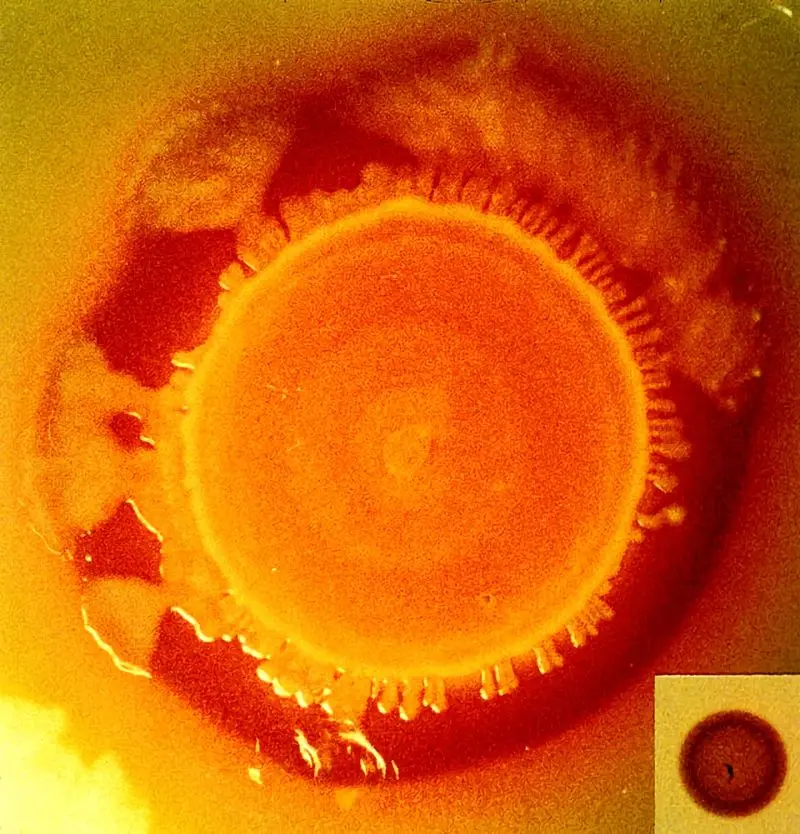 New Tracking Tool for Pathogen Investigators
New Tracking Tool for Pathogen Investigators -
Can binturongs be kept as pets?
-
 How long do instruments stay sterile after autoclaving veterinary?
How long do instruments stay sterile after autoclaving veterinary?
Parturition
Parenterally
Parasympathetic nervous system
 The portion of the nervous system which stimulates the pancreas to produce digestive enzymes and stimulates many of the smooth muscles in the body including those of the stomach and intestine. It also tends to slow the heart rate.... ↪ Read more
The portion of the nervous system which stimulates the pancreas to produce digestive enzymes and stimulates many of the smooth muscles in the body including those of the stomach and intestine. It also tends to slow the heart rate.... ↪ Read more Pannus
 A chronic condition of the eye in which blood vessels grow across the cornea (the clear surface of the eye). The cornea looks hazy and sometimes reddened; it may eventually take on a dark pigment. This condition is also called chronic superficial keratitis. Chronic superficial keratitis presumed to... ↪ Read more
A chronic condition of the eye in which blood vessels grow across the cornea (the clear surface of the eye). The cornea looks hazy and sometimes reddened; it may eventually take on a dark pigment. This condition is also called chronic superficial keratitis. Chronic superficial keratitis presumed to... ↪ Read more Pancreatitis
 Inflammation of the pancreas, a severe and sometimes life threatening disease often associated with eating fatty foods. Symptoms include vomiting and a painful abdomen. Inflammation of the pancreas due to a variety of causes such as infections and drugs, The pancreas produces enzymes and bicarbonate... ↪ Read more
Inflammation of the pancreas, a severe and sometimes life threatening disease often associated with eating fatty foods. Symptoms include vomiting and a painful abdomen. Inflammation of the pancreas due to a variety of causes such as infections and drugs, The pancreas produces enzymes and bicarbonate... ↪ Read more Palpation
 To examine with the hands or fingers. To examine something by touching and feeling it.... ↪ Read more
To examine with the hands or fingers. To examine something by touching and feeling it.... ↪ Read more Packed cell volume (PCV, hematocrit)
 A laboratory test to monitor relative number of red blood cells present in the blood. A blood sample is placed in a tiny glass tube and spun in a centrifuge. The cells are heavier than the plasma and are compacted at one end of the tube. After the tube is spun, it is examined and the packed cell... ↪ Read more
A laboratory test to monitor relative number of red blood cells present in the blood. A blood sample is placed in a tiny glass tube and spun in a centrifuge. The cells are heavier than the plasma and are compacted at one end of the tube. After the tube is spun, it is examined and the packed cell... ↪ Read more Ovulate
Over the counter
Ototoxic
Otic
Osmotic diuretic
 A compound that increases the amount of urine formed and rids the body of excess fluid by being filtered through the kidney into the urine in concentrated amounts and carrying water with it.... ↪ Read more
A compound that increases the amount of urine formed and rids the body of excess fluid by being filtered through the kidney into the urine in concentrated amounts and carrying water with it.... ↪ Read more Popular Diagnoses
Packed cell volume (PCV, hematocrit) Reflex ovulator Mucolytic Microfilaricide Bronchodilator Hematocrit Glucocorticoid Monoamine oxidase inhibitor (MAOI) ↪ All veterinary diagnoseOther Diagnoses
Lymphokines Macrophage Malabsorption / maldigestion syndrome Malignant Malnutrition Mammary Mange MAOIPopular Veterinary Clinics
VCA Welborn Animal Hospital, 7860 Washington Avenue Kansas City, KS 66112 USA MedVet Columbus, 300 East Wilson Bridge Road, Worthington, OH Rutland Veterinary Clinic & Surgical Center, 90 East Pittsford Road, Rutland, VT VCA Paradise Valley Emergency Animal Hospital, 6969 East Shea Boulevard Suite 150 Scottsdale, AZ 85254 USA Connecticut Veterinary Center & Pet ER, 470 Oakwood Ave West Hartford, CT 06110 USA Norway Veterinary Hospital, 10 Main St P.O. Box 273 Norway, ME 04268 USA Craig Road Animal Hospital, 5051 West Craig Road, Las Vegas, NV Abri Veterinary Hospital Inc, 1449 Trademart Boulevard Winston-Salem, NC 27127 USA ↪ All veterinary clinicsOther Veterinary Clinics
Scottsdale Cat Clinic, 5001 North Granite Reef Road, Scottsdale, AZ Kaibab Animal Hospital, 3010 North 68th Street Scottsdale, AZ 85251 USA Ingleside Animal Hospital, 4855 East Thomas Road Phoenix, AZ 85018 USA Quartz Mountain Animal Hospital, 8875 E Via Linda Scottsdale, AZ 85258 USA VCA McCormick Ranch Animal Hospital and Pet Care Center, 10380 North Hayden Road Scottsdale, AZ 85258 USA VCA Paradise Valley Emergency Animal Hospital, 6969 East Shea Boulevard Suite 150 Scottsdale, AZ 85254 USA Diley Hill Animal Emergency Center, 9695 Basil Western Rd Canal Winchester, OH 43110 USA VCA University Animal Hospital, 2500 S Hardy Drive Tempe, AZ 85282 USAPopular Drugs
DOXYLAMINE SUCCINATE Doses - PENICILLIN V POTASSIUM Doses - METHYLPREDNISOLONE, METHYLPREDNISOLONE ACETATE, METHYLPREDNISOLONE SODIUM SUCCINATE ACEPROMAZINE MALEATE Doses - PREDNISOLONE, PREDNISOLONE SODIUM SUCCINATE, PREDNISOLONE ACETATE, PREDNISONE Doses - FURAZOLIDONE Doses - FERROUS SULFATE Doses - LEVAMISOLE ↪ All veterinary drugOther Drugs
AL Laboratories 10 Mix 10 Gil Econo Dip PRIVERMECTIN® POUR-ON FOR CATTLE (ivermectin) Buffered Aspirin For Medium to Large Dogs TAPE WORM TABS® (praziquantel) Tapeworm tablets for dogs and puppies Gil Peroxy-Plus I-Deal PromAce® Tablets Acepromazine Maleate Tablets, USPPopular Terms
Subalbinotic Steatis Uteroverdin Paradoxical CSF acidosis Figure of 8 suture pattern Nerve root signature Ovariohysterectomy Abrev OVH Signalment ↪ All veterinary termOther Terms
Undegradable intake protein Abrev UIP Unilateral Unsaturated fat Upright silo Ureter Urethra Urinary bladder Urinationveterinary-help.com
© 2011-2025 Veterinary Clinics, Diagnoses, Terms and Drug Handbook Online


